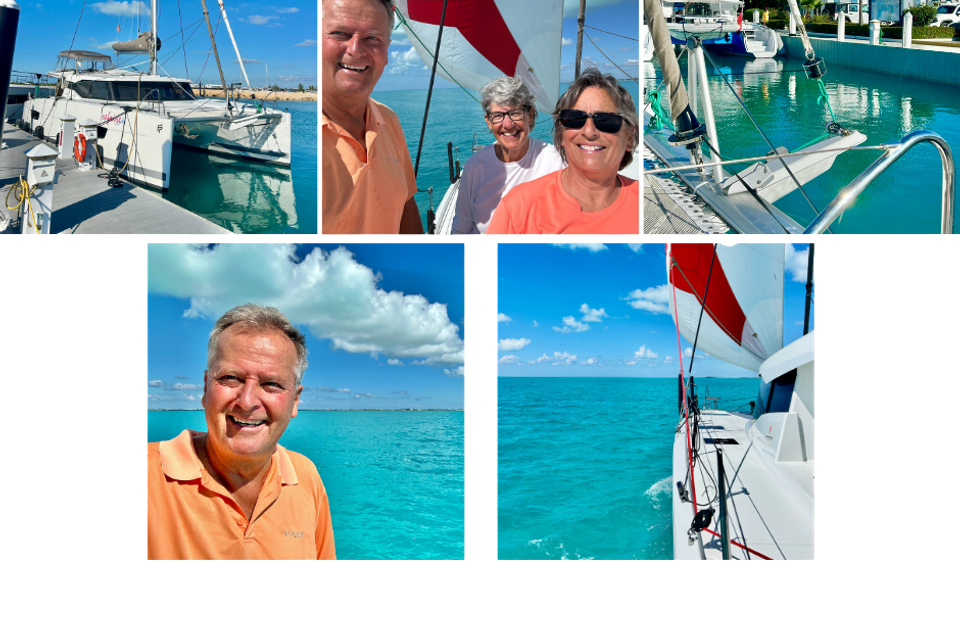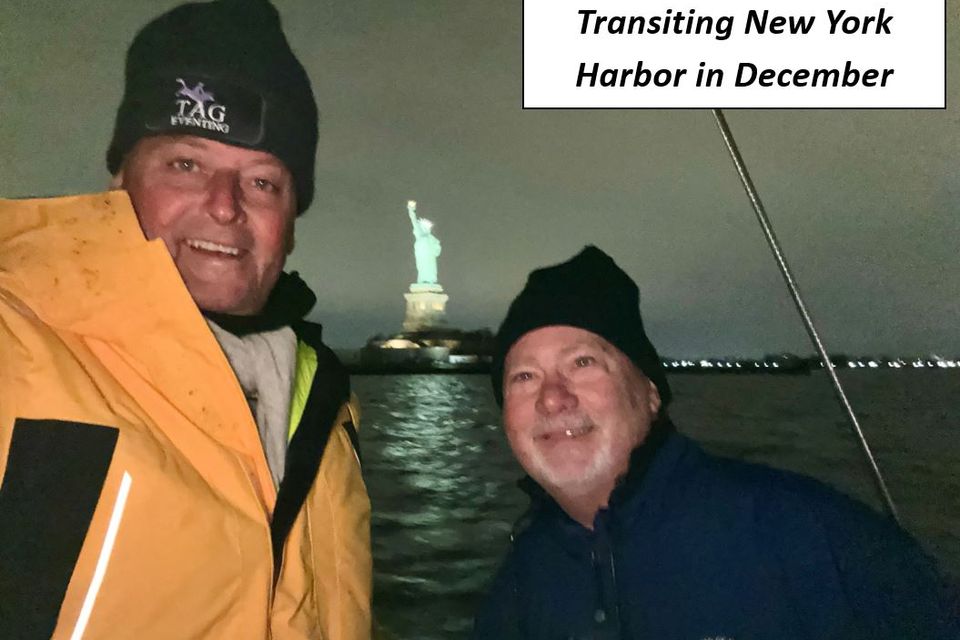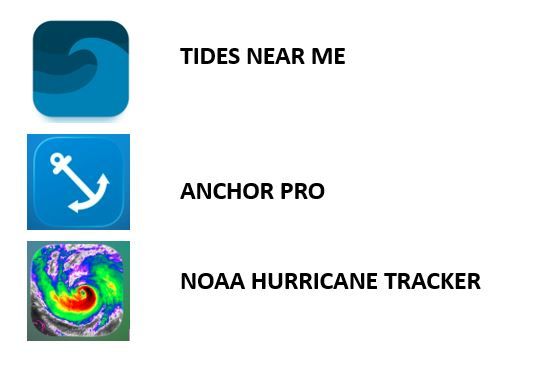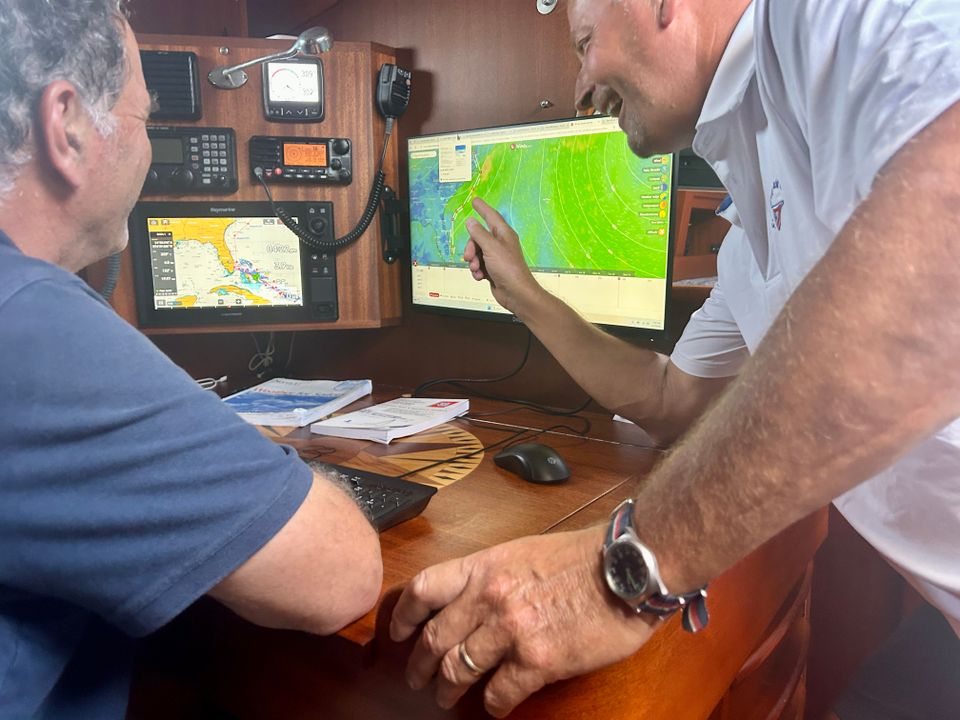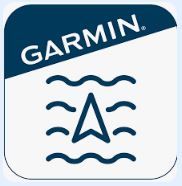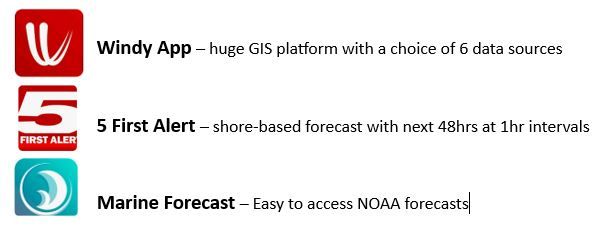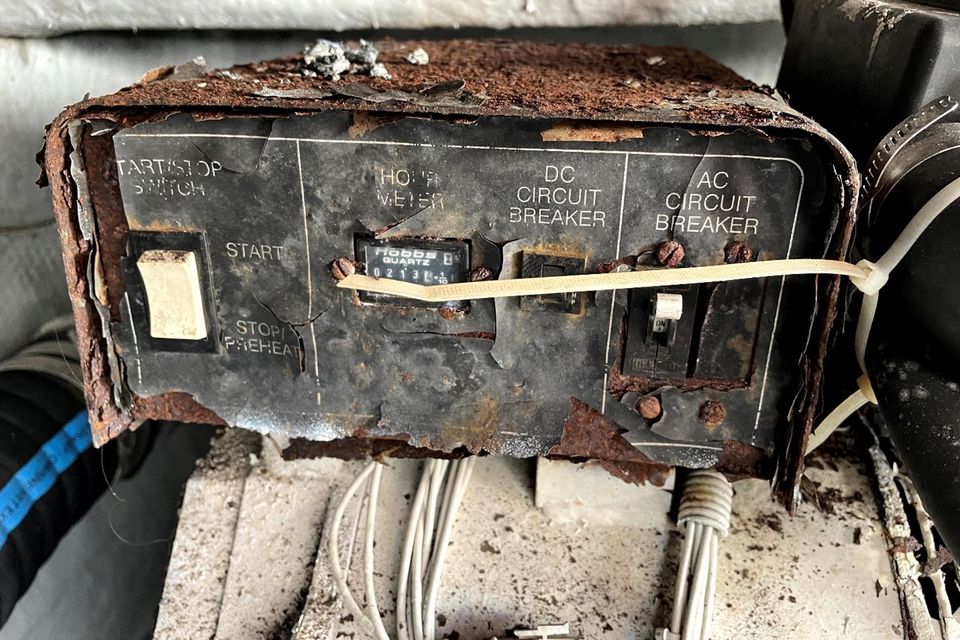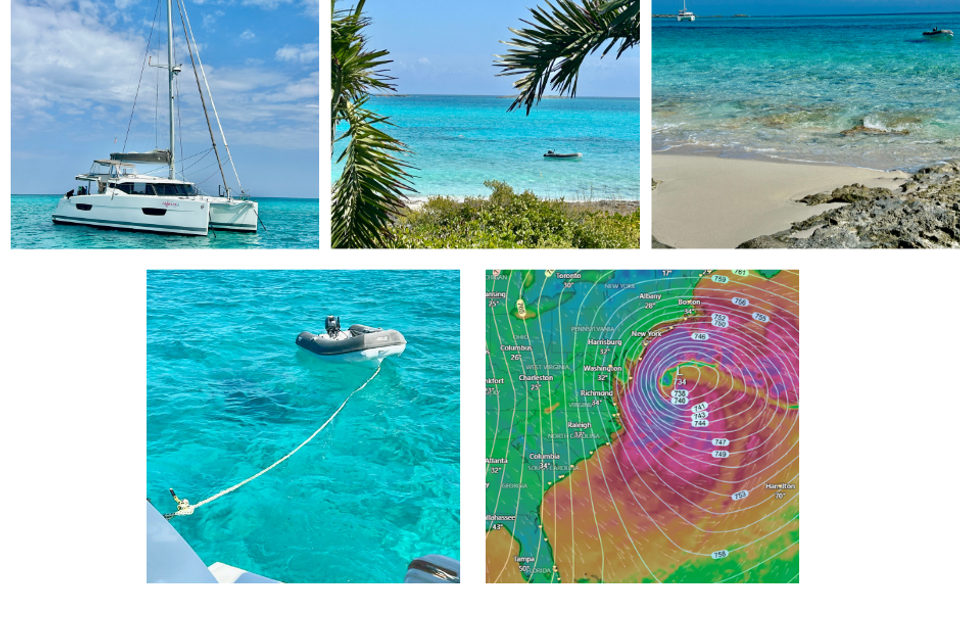
Arriving in Charleston from Turks & Caicos
We made it back safely to Charleston from the Turks & Caicos!
It's an interesting trip for meteorological reasons in that: the Low systems on the east coast USA tend to spin up routinely every week or so. The larger Lows affect wind directions all the way down to the Bahamas and even Ts and Cs. So....a 6 day delivery from Turks & Caicos can just about squeeze in between two such Low systems and have a clean sweep of good winds all the way through!
We were lucky on this delivery - and took just 6 days to complete the 920nm, departing as the effects of a Low left the islands, and arriving in Charleston just before this giant Low hit the Holy City an icy blast!! We even managed to fit in a quick snorkel at my 'Happy Place': Highborne Cay in the Exumas!
Thank you to the owners of the beautiful 2016 Fontaine Pajot 40' LUCIA Owners Version for once again asking me to support their dreams! They also kindly added a comment to my testimonial library.
The boat is in fabulous condition - and is now for sale in Charleston with my friends at The Multihull Company should you like to view her!
It's an interesting trip for meteorological reasons in that: the Low systems on the east coast USA tend to spin up routinely every week or so. The larger Lows affect wind directions all the way down to the Bahamas and even Ts and Cs. So....a 6 day delivery from Turks & Caicos can just about squeeze in between two such Low systems and have a clean sweep of good winds all the way through!
We were lucky on this delivery - and took just 6 days to complete the 920nm, departing as the effects of a Low left the islands, and arriving in Charleston just before this giant Low hit the Holy City an icy blast!! We even managed to fit in a quick snorkel at my 'Happy Place': Highborne Cay in the Exumas!
Thank you to the owners of the beautiful 2016 Fontaine Pajot 40' LUCIA Owners Version for once again asking me to support their dreams! They also kindly added a comment to my testimonial library.
The boat is in fabulous condition - and is now for sale in Charleston with my friends at The Multihull Company should you like to view her!

